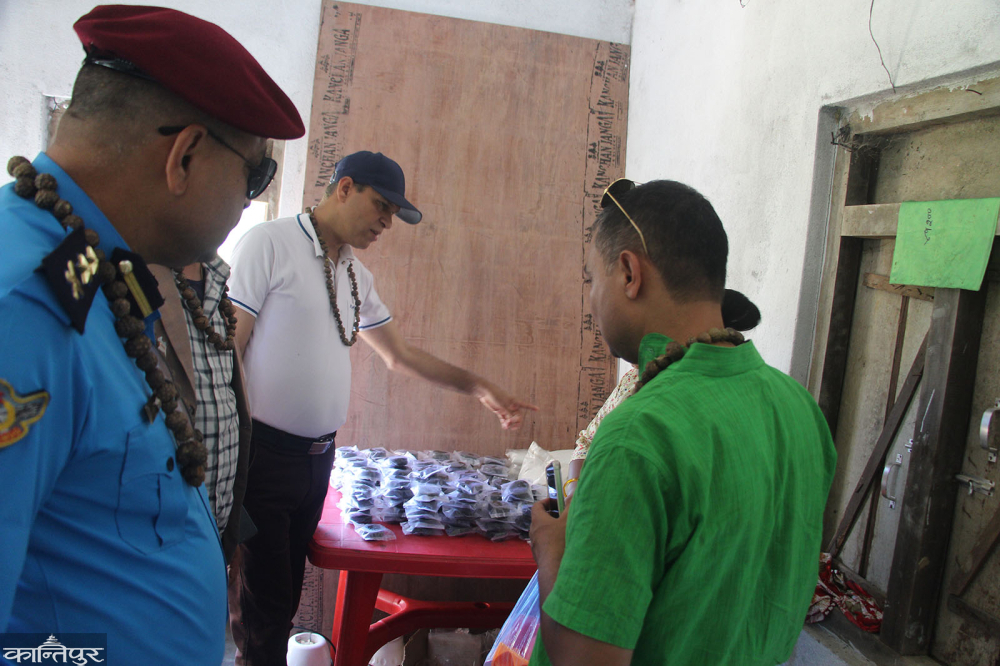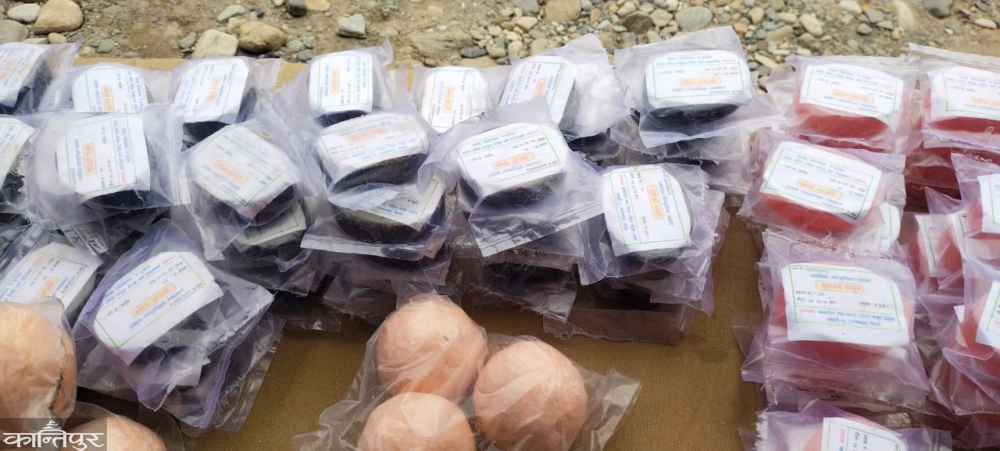Forestry women: leaving the nomadic life to become entrepreneurs

We use Google Cloud Translation Services. Google requires we provide the following disclaimer relating to use of this service:
This service may contain translations powered by Google. Google disclaims all warranties related to the translations, expressed or implied, including any warranties of accuracy, reliability, and any implied warranties of merchantability, fitness for a particular purpose, and noninfringement.




The women of the endangered Firante community are earning income by producing soap from wasted herbs. They have been collecting rent, washing clothes and producing bath soap in the village for nine months. They have been producing soap from Ghiukumari, Titepati and Neem leaves since last November.

Three decades ago, the foresters living in Manhari rural municipality-4 Musedhap of Makwanpur are producing and selling soap after registering it as a household industry. Santoshi Vankaria, the leader of the community, said that the soap produced by them is consumed in the village. 25 people from the
community have also registered the industry under the name of Onekaria Chepang Women's Soap Industry. Santoshi said that after the National Tribal Women's Forum trained them in soap making, they got an opportunity to earn income. The platform also provided the necessary tools to produce
soap. We have planted neem plants in our own garden for soap. Ghyukumari is also in the garden . "Titepati is not very sad, it is found everywhere," said Santamaya Vanakaria.
The organization that provided the training had provided two lakh rupees with the necessary materials for making soap. They brought farma from Butwal to make soap. "It takes hard work to make soap, you have to pick bitter gourd, you have to cook bananas," said Santoshi. They claim that the soap produced here is good for people with sores, itching and skin patients.

After making a paste of gheekumari, neem leaves and pepper, cook it for about an hour and put it in the soap making form . The platform has given five licenses for soap manufacturing to the group. Some of them can make 6 soaps at a time, while some can make up to 24 soaps at a time.
We sell small, medium and large soaps for 20 to 60 rupees. Training institutions have also purchased it. Now there is no problem of sale," said Santoshi, "They have bought this soap in various offices and villages of the municipality, 22 families in the slum use only this soap."
Reaching the settlement of the Vankariya community, Makwanpur Pragya Tirtharaj Chiluwal and Superintendent of Police Sitaram Rizal observed the soap produced by Vanakaria women and also bought soap worth 2 thousand rupees. Prajia Chiluwal, expressing her happiness that the forester women who spent a wandering life in the forest for two and a half decades, joined the income generation, said, "This is the way to bring a backward community and class to the fore, this is the example." The endangered foresters who are doing it don't even have land in their name . "They are sons of the earth but they don't have a piece of land in their name," said the ward president Prakash Thapa, "The area they are living in is within the Parsa National Park". She expressed the pain of having to become a Sukumvasi. "Where we are sitting now, the land of Thatathlo should be arranged in our name," she urged Prazia.
The endangered Vankariya community was living a wandering life in the forest until about three decades ago. In order to make their lives easier, the government provided them with Kabuliyati forest located in Musedhap in the year 2062 . They have been demanding the government to provide the red portion of the land where they are living now. But the government has not been able to provide it.
Now there are 93 forest families living in 22 households in Musedhap. Since 2066, the government has been providing social security allowance to the forestry community with the aim of bringing the ten endangered castes into the mainstream of the country. Women are the leaders of this community, which has the influence of matriarchy.

 प्रकाशित : भाद्र २२, २०८१ १८:५९
प्रकाशित : भाद्र २२, २०८१ १८:५९

 २२.१२°C काठमाडौं
२२.१२°C काठमाडौं














